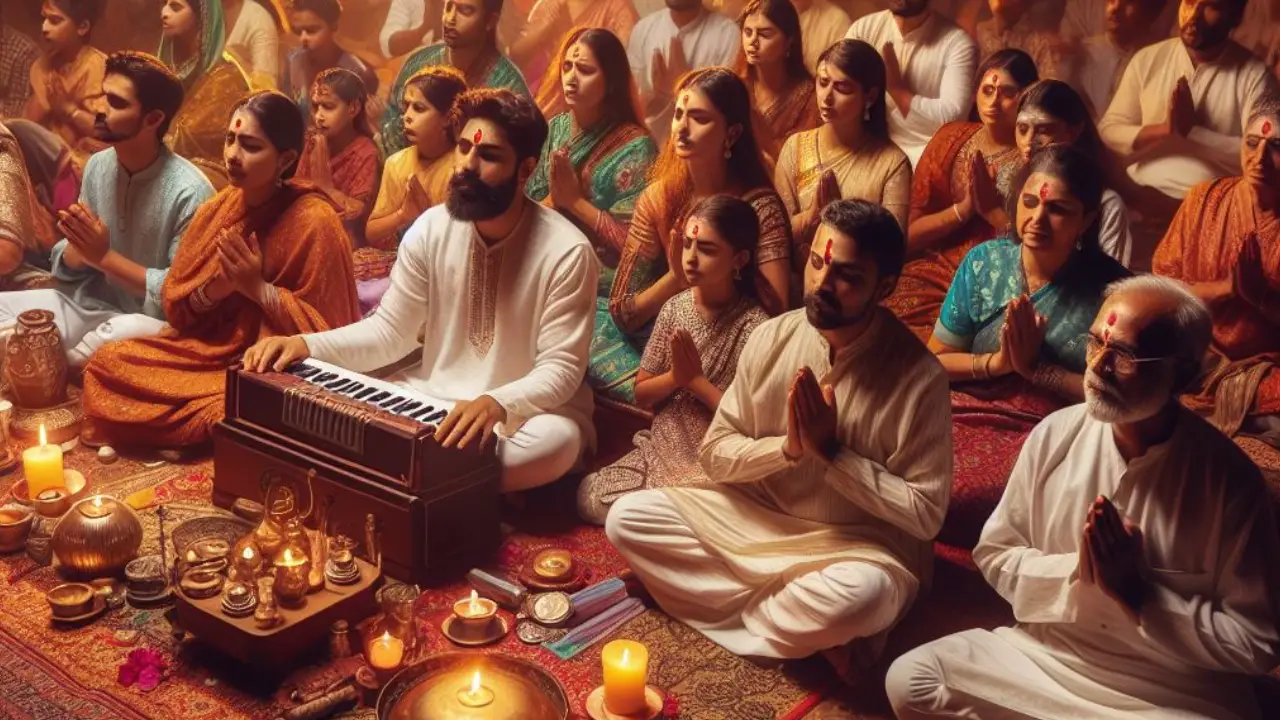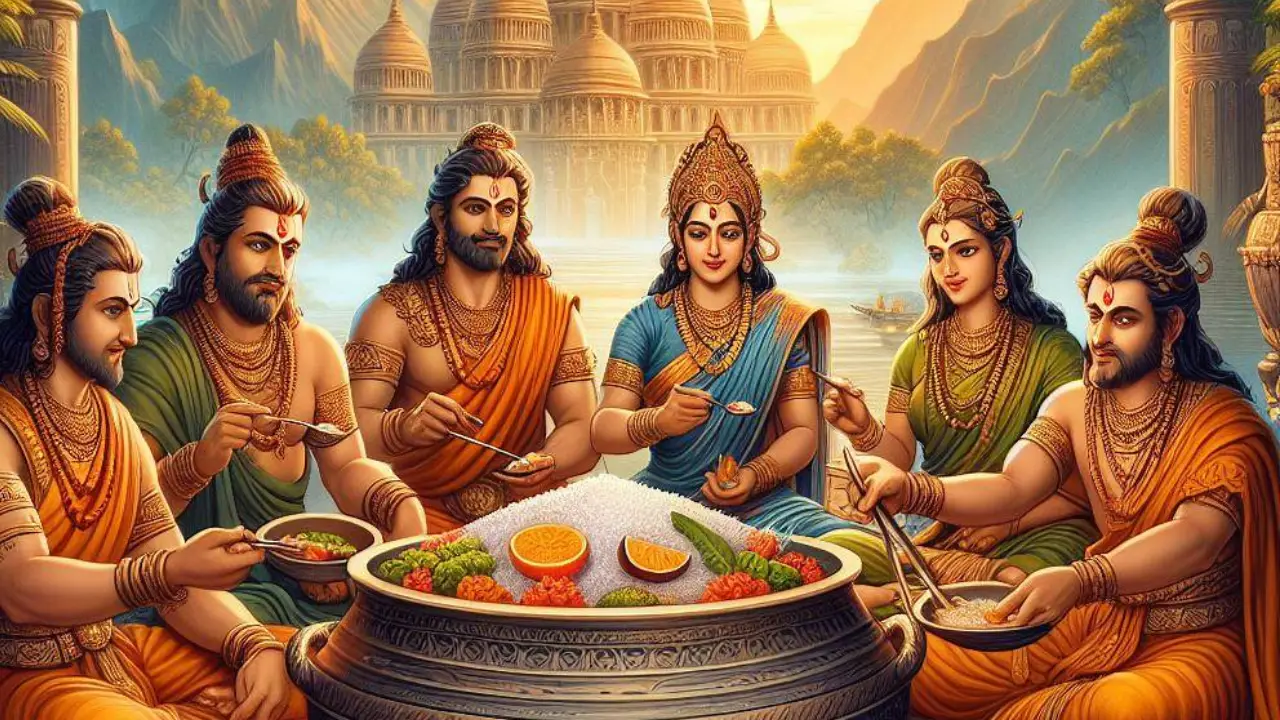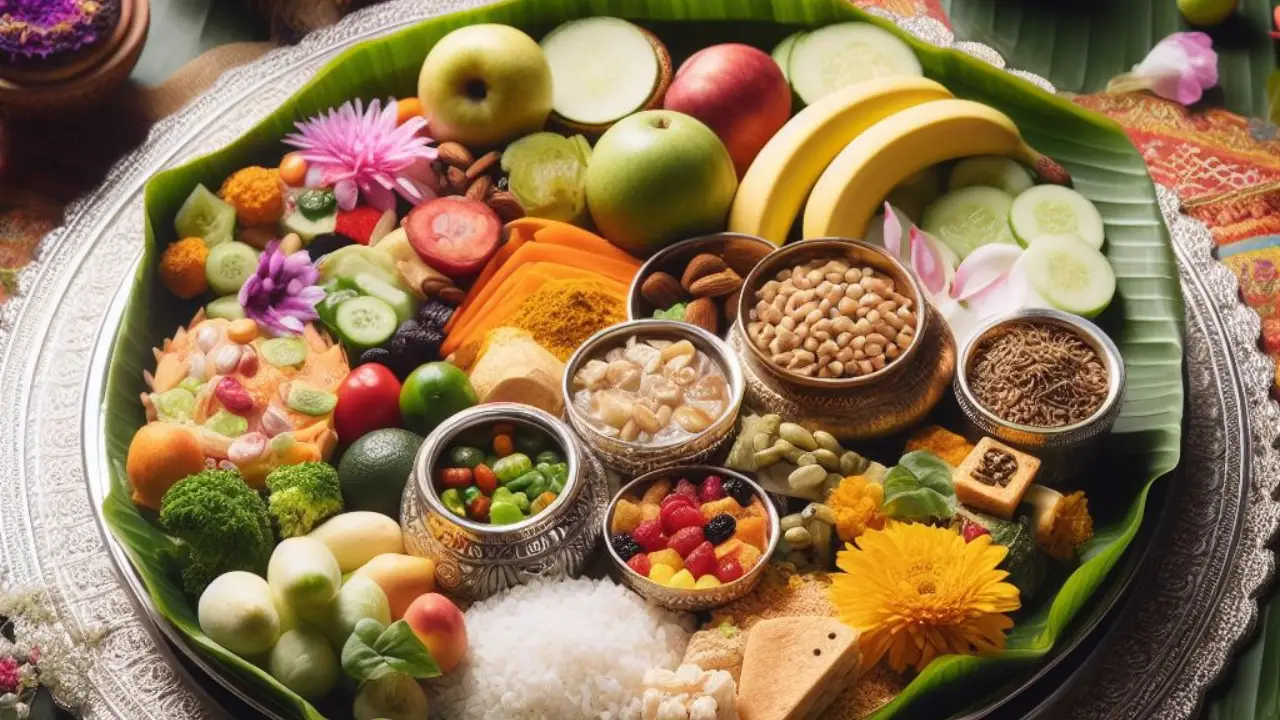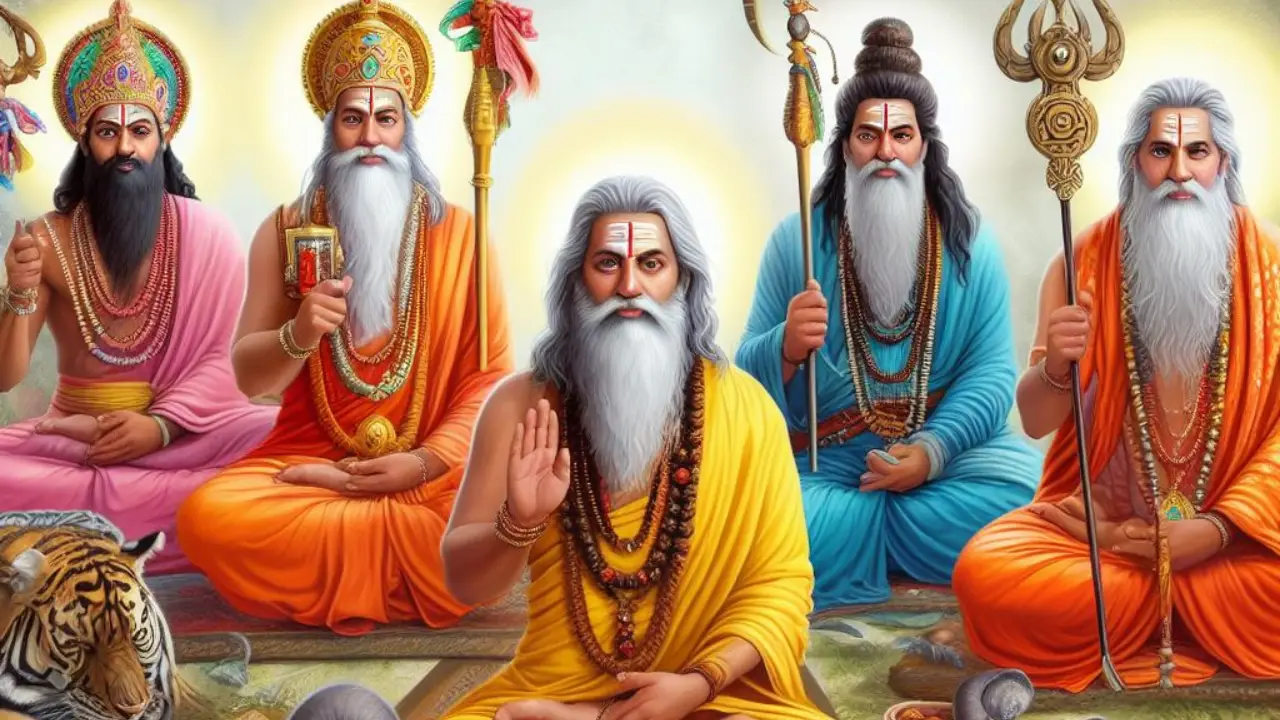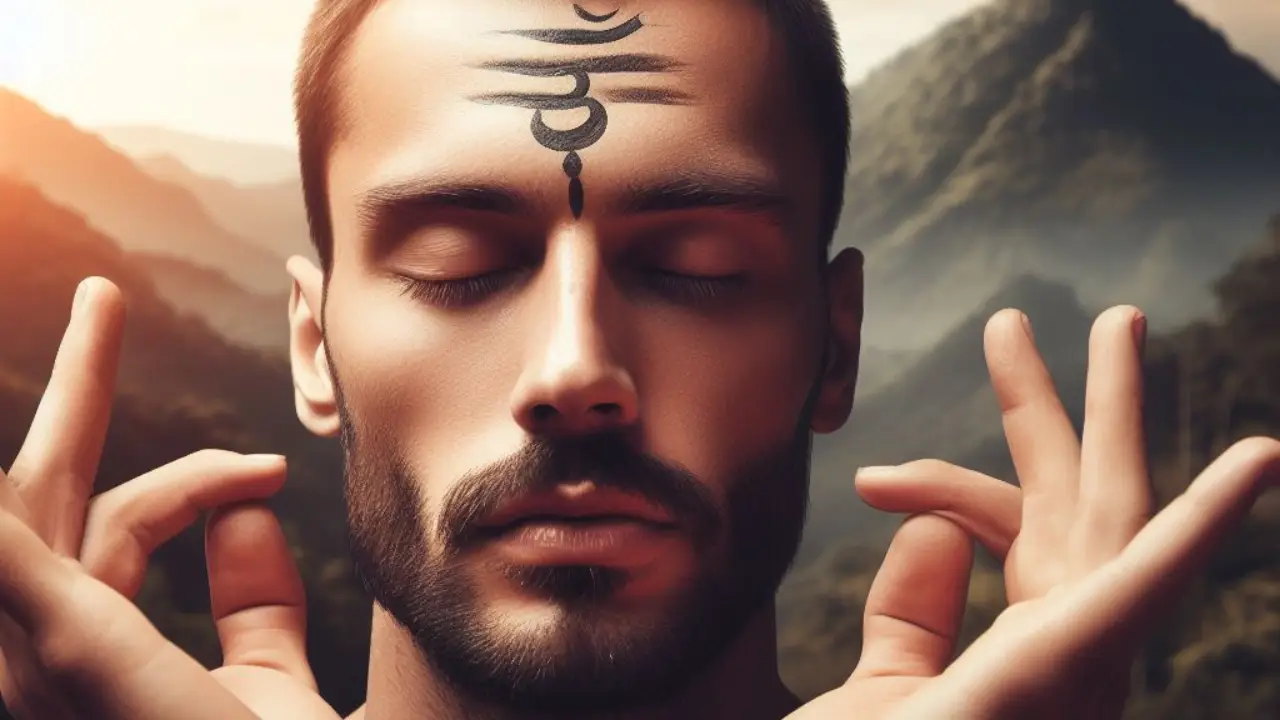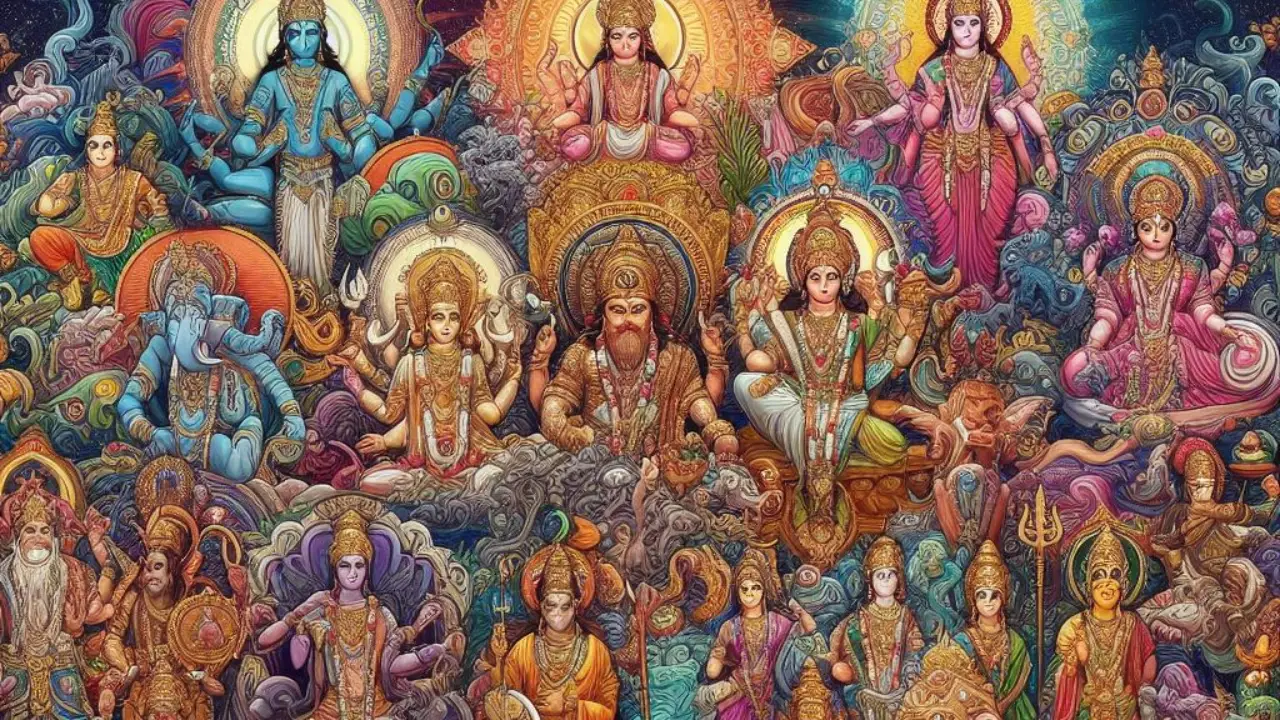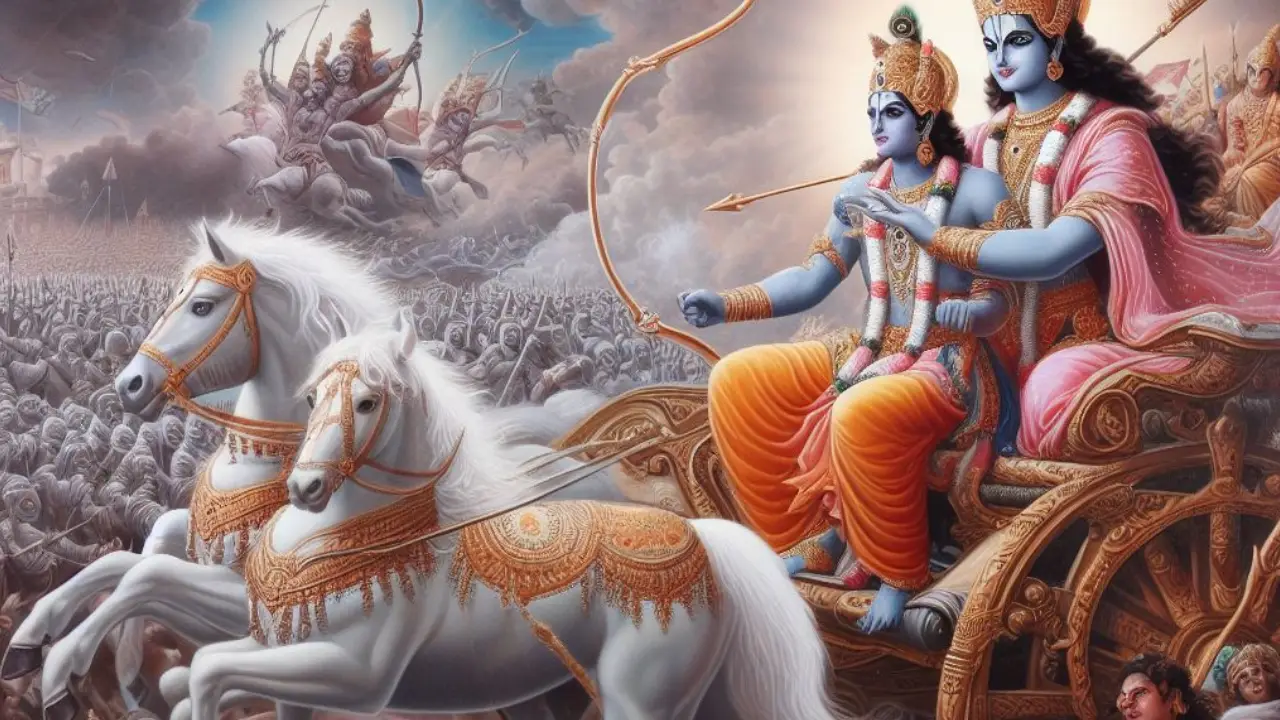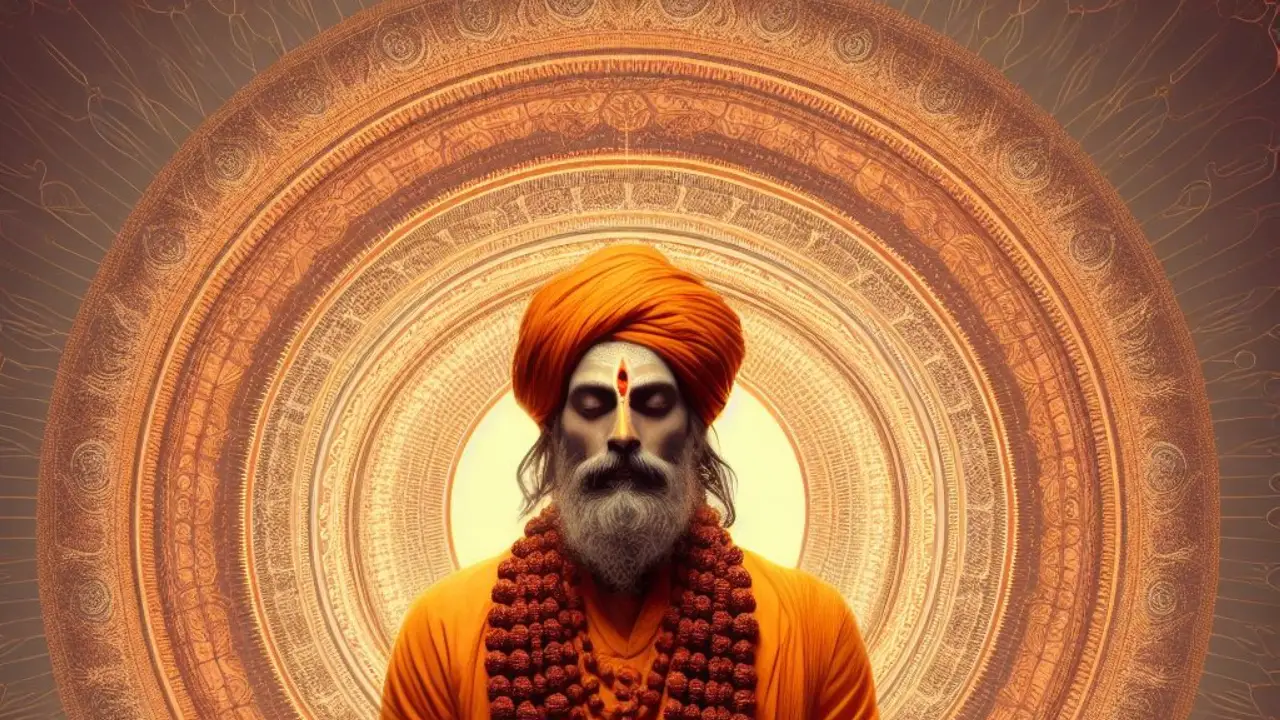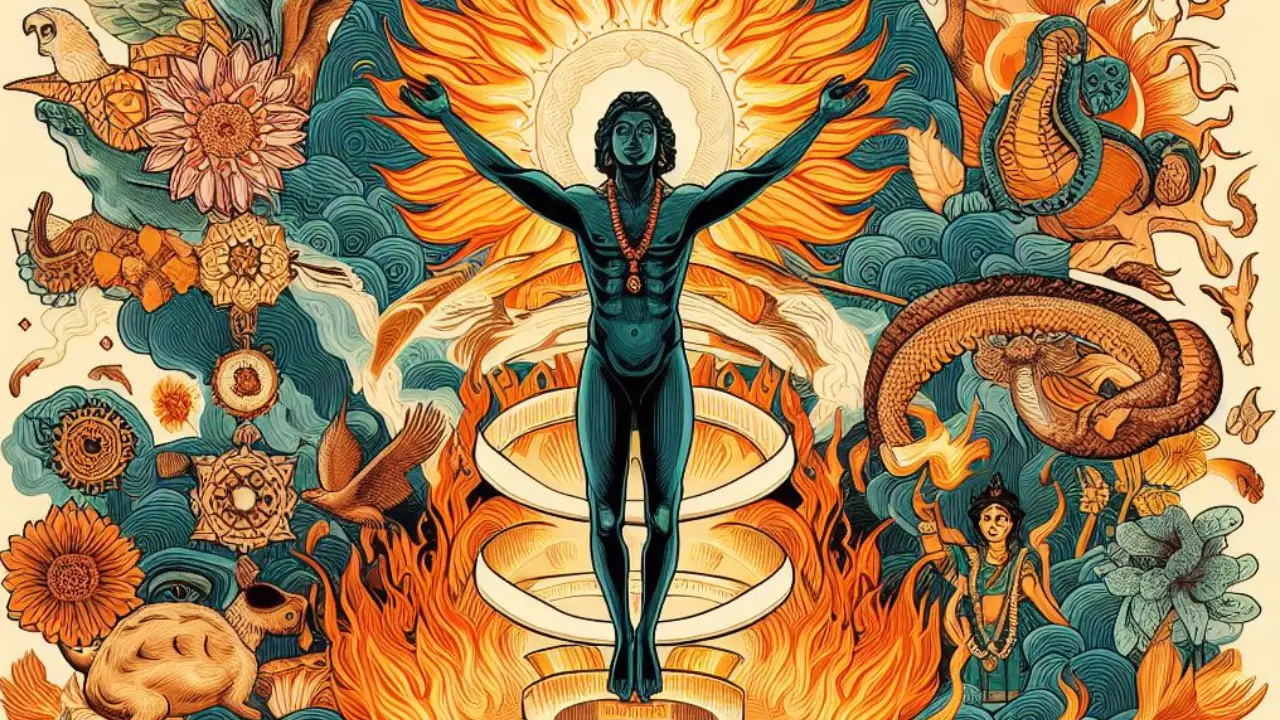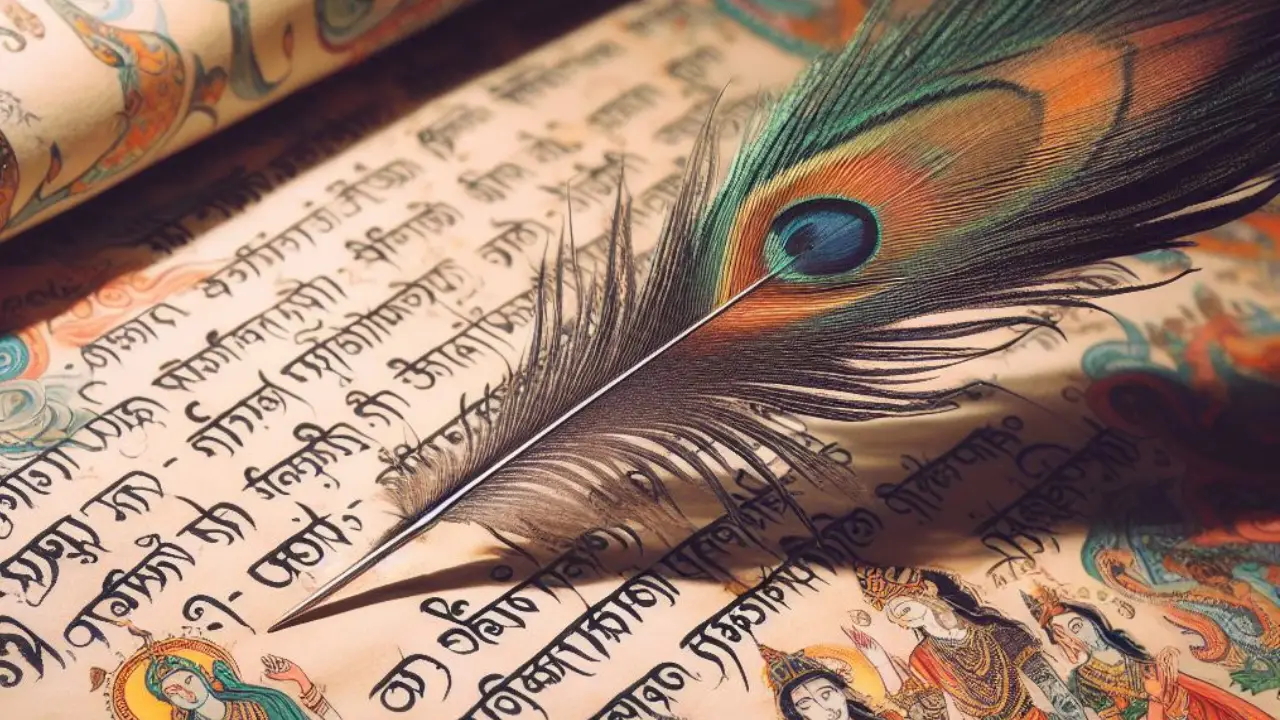Within the intricate fabric of Hinduism, music serves not merely as a source of entertainment but as a deep manifestation of spiritual expression. Two distinct musical traditions, Bhajan and Kirtan, play pivotal roles in connecting devotees with the divine. Bhajan: A Melodious Devotion Bhajan, originating from the Sanskrit word ‘bhaj,’ meaning to worship, is a…
Category: Hinduism
Hinduism is diverse, old, and complex, with spiritual, cultural, and philosophical elements. It originated in the Indian subcontinent. It lacks a single founder or centralized authority, making it diverse and decentralized.
Hinduism advocates virtuous and ethical living in harmony with duty, guided by dharma. The moral code stresses interconnectedness and fulfilling obligations to family, society, and cosmos.
Hinduism’s pantheon includes Brahma, Vishnu, and Shiva, representing various aspects of the divine. Deities are revered in different forms, and individuals may choose a personal connection.
Karma plays a central role, determining future existence through samsara’s cycle. Accumulating good karma leads to a better future or liberation from reincarnation (moksha).
Integral practices like yoga and meditation aim for self-realization and unity with the divine. Hindu rituals and festivals express devotion, celebrating nature, epics, and good triumphing over evil.
With over a billion adherents, Hinduism evolves while preserving core principles. Its inclusivity allows harmonious coexistence with other religions, shaping India’s cultural landscape and influencing the world.
Draupadi’s Rice Kettle: Pandavas’ Divine Last Meal
In the grand tapestry of ancient epics, the Mahabharata stands as a monumental narrative capturing the essence of human virtues and vices. Within this vast chronicle, a poignant moment known as the Pandavas’ Last Meal unfolds, with Draupadi’s Rice Kettle at its heart—an emblem of resilience, unity, and resourcefulness amidst the chaos of the Kurukshetra…
Food in Hinduism: Ethics and Spirituality of Eating
Food in Hinduism plays a central role, weaving through the fabric of rituals, spirituality, and everyday life. The intricate dance between vegetarianism and Prasad, sacred offerings, reveals profound insights into the Hindu way of life. Ahimsa and the Vegetarian Ethos At the heart of Hindu dietary practices is the principle of Ahimsa, or non-violence. Many…
Gurus in Hinduism: Enlightening Spiritual Paths
In Hinduism, the special teachings of respected gurus are like bright threads in a complex and important design. These spiritual guides, with their sagacious teachings and transformative insights, play an indispensable role in guiding seekers on the intricate path of self-discovery and enlightenment. Introduction: Nurturing Souls through the Illumination of Guru’s Light Hinduism, often described…
Unlocking the Soul of Hinduism: A Complete Guide
Hinduism, one of the world’s oldest and most profound religions, has a history that spans thousands of years. It is a rich tapestry of beliefs, practices, and cultural traditions that have captivated the hearts and minds of millions. In this comprehensive guide, we delve deep into the essence by unlocking the soul of Hinduism, exploring…
The Many Faces Of God In Hinduism: An Overview
Hinduism is one of the oldest religions in the world, with a rich and diverse set of beliefs and practices. One of the most striking aspects of Hinduism is its pantheon of gods and goddesses, which reflect the many faces of god as perceived by Hindu devotees. In this article, we will explore some of…
Wisdom from Bhagwad Gita: Lessons for Modern Living
The Bhagwad Gita, a sacred ancient text from India, encapsulates the essence of life’s teachings and philosophy. Its timeless wisdom offers invaluable insights into self-awareness, ethical living, and spiritual growth. This blog post delves into the profound wisdom from Bhagwad Gita, examining its verses and exploring real-life examples to understand how its teachings can be…
Dharma In Hinduism: Duty And Responsibility
Hinduism is one of the oldest religions in the world, with a rich philosophical and spiritual tradition that dates back several thousand years. The concept of Dharma, which can be defined as the universal principle of righteousness or duty, lies at the core of Hinduism. Dharma is a central concept in Hindu philosophy and has…
Reincarnation In Hinduism: Moksha Explained
The concept of reincarnation in Hinduism, also known as rebirth, is a central belief in many religions and spiritual traditions. One of the oldest and most well-known religious traditions that emphasizes the idea of reincarnation is Hinduism. In Hinduism, the cycle of reincarnation is known as Samsara, and the ultimate goal of spiritual practice is…
The Sacred Hindu Texts: Vedas, Upanishads, Gita
Hinduism is one of the world’s oldest and most complex religions, with a vast and varied body of texts that form the basis of its beliefs and practices. The sacred Hindu texts that are the most important in Hinduism are the Vedas, the Upanishads, and the Bhagavad Gita. These texts have considered the foundation of…

